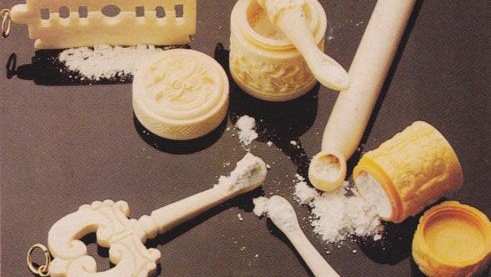What Are Alabama’s Laws on Drug Paraphernalia?
You may find yourself in serious trouble under Alabama’s drug laws, even if you don’t have actual drugs in your possession. The state’s criminal code makes it a crime to possess drug paraphernalia, which is generally defined as anything that can help a person use, store, sell, or produce drugs.
Alabama Drug Paraphernalia Laws
Alabama Code § 13A-12-260 states that it is illegal for any individual to possess, deliver, or sell drug paraphernalia with the knowledge that it is going to be used in connection with a controlled substance. The state defines drug paraphernalia as any products, materials, or equipment that are used or designed for use in smoking, injecting, growing, planting, manufacturing, producing, processing, storing, or packaging controlled substances.
Types of drug paraphernalia that are included under the law are:
- Rolling papers
- Pipes
- Bongs
- Needles
- Capsules
- Scales
- Containers
- Dilutants
When Alabama law enforcement chooses to arrest someone for violation of this law, they may cite several indicators to classify something as drug paraphernalia. Among those are:
- Statements by the defendant detailing use of the objects
- Drug residue on or in the object
- The proximity of a controlled substance to the object in question
- Whether or not the individual has prior drug-related convictions
Arrests for Common Items and Precursor Chemicals
Because Alabama’s law related to drug paraphernalia is so broad, there’s a chance that someone could be arrested for possessing normal household items such as buckets, garden tools, cooking equipment, tobacco pipes, and small containers.
It’s also a crime in Alabama to possess anhydrous ammonia and certain other products or chemicals that could be considered ingredients (or precursors) to controlled substances. Among these items are:
- Drain cleaners
- Paint thinner
- Rat poison
- Propane fuel
- Acetone
- Cold medicines that contain ephedrine or pseudoephedrine
It’s important to state that possession of these items isn’t illegal. It would be against Alabama law if the person possessing the chemicals intended to use them to manufacture a controlled substance. In these cases, charges are treated as a Class B felony, which carries a penalty of up to 20 years in prison.
Consequences of a Drug Paraphernalia Charge
If you’ve been arrested and charged with possession of drug paraphernalia, you may be tempted to treat the matter lightly. Don’t. The state of Alabama classifies these crimes as a Class A misdemeanor, which could have some dire consequences. The penalties should you be convicted can include fines of up to $6,000 and jail time of up to one year.
A subsequent drug paraphernalia charge in Alabama is treated as a Class C misdemeanor. This is punishable by a fine of up to $15,000 and between 1 to 15 years in prison. If a person provides drug paraphernalia to a minor (under 18) and that person is at least three years older than the minor, they could be charged with a Class B felony, which carries penalties of a maximum $30,000 fine and up to 20 years in prison.
There is much more at stake than just the legal penalties. If you don’t fight these charges, you will end up with a conviction on your record. This could impact your future ability to get a job, find a place to live, and even receive financial aid for school. Your best course of action is to consult with an Alabama drug crimes attorney who can speak with you about your options.
If You Are Facing Drug Paraphernalia Charges
Drug paraphernalia charges can be dubious depending on the circumstances and evidence. These arrests are often a last-ditch effort to trap someone who law enforcement believes is guilty of other crimes but has no real proof of the offenses. If you are asked to submit to a voluntary search or interrogation, it’s in your best interests to refuse.
Your criminal defense attorney will review your case and look for any weaknesses, including possible violations of your rights. In some cases, the charges against you could be dropped or substantially reduced, depending on the nature of the evidence.
Speak with a Qualified Alabama Drug Crimes Attorney
As with all criminal charges in Alabama, you have the right to due process. At the law offices of Alsobrook Jackson, Attorneys at Law, our experienced drug crimes attorneys understand this state’s criminal justice system and have years of experience helping clients who find themselves charged with erroneous drug crimes.
If you are facing drug charges, don’t leave your freedom and future to chance. Contact our Auburn office now at 334.737.3718 or online to schedule your free consultation.








